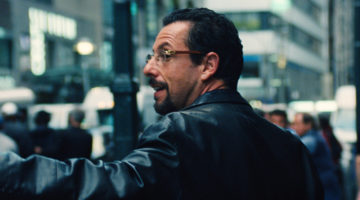TIFF 2012: Zac Efron and David Oyelowo chat about 'The Paperboy'
The anticipation of polarized reactions, an embrace of the grotesque and a first-day shoot that called for him to be urinated on did not seem to faze Zac Efron as the young star matures and takes on more demanding roles. A challenging character to be sure in Jack Jansen, Mr. Efron gave himself completely to Lee Daniels in his latest film The Paperboy, a dark, pulpy slice of unsettling southern pie.
“Some people really love it and get it, and some people don’t and can’t comprehend why others care,” Mr. Efron explains while in town promoting during the Toronto International Film Festival. “It incites discussion.”
That is for sure.
The scene that is most discussed involves Nicole Kidman’s character Charlotte Bless coming to the rescue of Ward after he goes swimming and is stung by jellyfish. In an attempt to save him, she tends to the wounds the only way she knows how.
“I took a step back and grasped it,” he says of the scene. In another scene with Ms. Kidman, he explains, the pair lost themselves in their characters and went off script, dancing together in the rain. “Nicole took the lead, it was just a product of the moment. I gravitate towards things I don’t fully understand, I think [Mr. Daniels] expected some hesitation, but I was ready.”
Another scene finds Mr. Efron fighting Yardley, a scholarly, high-minded colleague of his older brother, played by David Oyelowo.
There is not artifice when working with Mr. Daniels, explains Mr. Oyelowo, with the beach scene for one, and the fight scene as well. “There wasn’t much choreography, which is why it hurt so much,” says Mr. Oyelowo. “We did it so many times, we were both raw, with cuts and bruises everywhere. We went for it every single time.”
Admittedly, however, Mr. Oyelowo did not initially jump at the part. “The first permutation of the script I read didn’t have Lee’s revisions, and it was largely a whodunit, and I didn’t feel anything for the characters.” Upon changes however, including making Mr. Oyelowo’s character black (he is white in the Pete Dexler novel from which the film is based), he became convinced. “Lee is a lover of humanity, he does everything he can to mine who we are as human beings.”
It is surely to Mr. Lee’s credit that not only does he have such a stellar cast for his film, but that he can ask of them all to be honest and trusting, whether a scene involves fighting, deviant sex, or other, entanglements, of sorts. That in and of itself, though, is from where much of the initial criticism of the film develops. Regardless, The Paperboy, in all its raw emotion, sweat-laden story-telling, and deviousness, is worth talking about.
“People can’t pin down Lee, because he is shamelessly cinematic, shamelessly big with some of his choices, and he pushes these boundaries. You are seeing something that will spark conversation, that will stay with you for a while, that may make you need a shower, but it will provoke a reaction, and that’s a great thing.”





